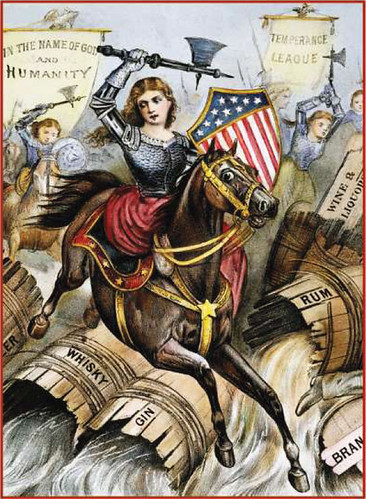
There was yet another interesting piece in his month’s Playboy, an essay toward the back by Jessica Warner, the author of a recent book, All or Nothing: A Short History of Abstinence in America. Her essay, The United States of Abstinence: How Saying No Became A Distinctly American Practice, is definitely worth seeking out, but here’s the salient bits.
She begins by outlining the history of the idea of abstinence itself.
In no place other than America has the idea of abstinence — whether from food, drink, drugs or sex — taken root so deeply. Your federal tax dollars are currently being used to tell kids to put off sex until they enter into a “biblical marriage relationship.” The 1980s gave us Nancy Reagan and her antidrug mantra “Just say no.” A century earlier, Anthony Comstock crusaded to outlaw smut, penny dreadfuls and contraceptives, while Frances Willard led America’s women in a fight against demon rum. There have been so many crusades it is easy to forget that at one time, in the 17th and 18th centuries, abstinence meant only one thing to Americans: no sex until marriage. The idea that people should abstain from all other vices first appeared in the 1830s. What began as a campaign against distilled spirits suddenly morphed into a campaign against all forms of alcohol and then against all other “stimulants” — tea and coffee, pickles and spices, meats and apple pie, fancy clothes and double entendres, narcotics and soft mattresses, and, last but not least, sex with oneself.
She then quickly outlines the early influences of religions, and how different Christian denominations reacted differently to temperance sentiments based on their own interpretations of scripture, and specifically a peculiar idea, or doctrine, known by different names, such as “Christian perfection, sanctification, the second blessing or holiness.” That notion was essentially the “touchstone for abstinence in America.”
That idea leads adherents “to believe [people] can overcome sin in its entirety” and so “Christian perfection and abstinence are mutually reinforcing concepts of extreme behavior.” These manifest themselves into “a declaration of all-out war on sin.”

Not every denomination feels as strongly, but the stronger that commitment, “the more likely it encourages abstinence.” And in places like Great Britain, for those same reasons the idea of abstinence never caught on in the same way. There, church leaders like John Wesley — of the Methodists — believed their “religion does not lie in doing what God has not enjoined or abstaining from what he hath not forbidden.”
Among modern evangelicals, the Pentecostals have the strongest commitment to Christian perfection and the highest rate of teetotalism, reaching 70 percent. In contrast, Baptist churches vary in their commitment to perfection, and their overall rate of teetotalism, under 55 percent, is correspondingly lower.
And the Baptists, who over the last few years have had their leaders come out very publicly against alcohol, are not all in agreement at any rate.
When the Southern Baptist Convention recently attempted to reaffirm its “total opposition to the manufacturing, advertising, distributing and consuming of alcoholic beverages,” its younger members objected, complaining that the resolution needlessly “draws a line in the sand.” For the modern evangelical, abstinence effectively means one thing only: saying no to sex outside marriage. There is a certain irony in all this, for in drawing the line at the sins of the sexual revolution, modern evangelicals have, quite despite themselves, returned to the status quo ante, that is, to the looser moral code of America before the great evangelical revivals of the 1800s. The interesting question is whether the list of taboos will continue to shrink and, if so, what will be the next thing to go.
To me, that’s a fascinating question as anti-alcohol groups appear to be gaining influence, especially politically, while younger generations seem generally less interested in their rhetoric. I’ll be very interested to read the entire book, All or Nothing: A Short History of Abstinence in America, which I ordered right after I finished the article.

Fascinating post, once again. Yeah, now you made me order the book too!
Keep up the good work
Miss Manners says, “Just say no thank you”.
If we ignore the Muslim world it can be said that “In no place other than America………”
There are much deeper abstinence roots found there.